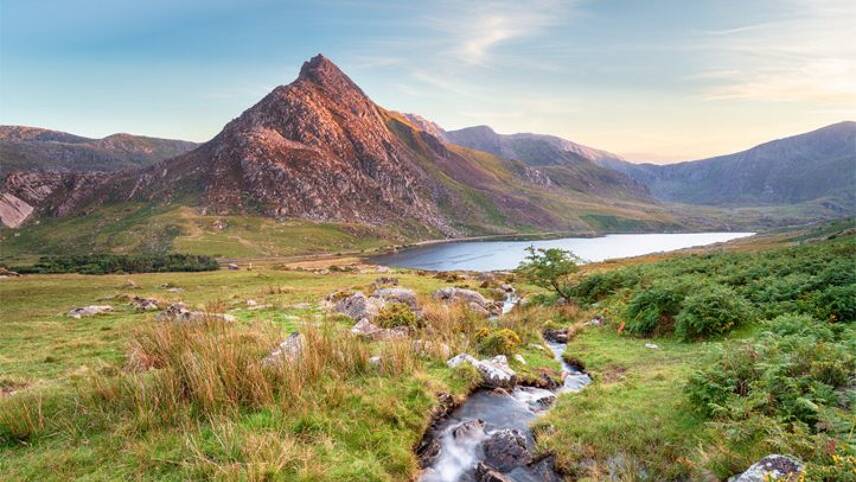Register for free and continue reading
Join our growing army of changemakers and get unlimited access to our premium content

The Environment Bill will be reintroduced to Parliament shortly after the summer recess finishes
In an update to the Environment Bill, published today (19 August), the Department for Food, Environment and Rural Affairs (Defra) confirmed that it is developing time-bound, numerical targets aimed at tackling an array of environmental issues.
At least one “strong and meaningful” target will be introduced for each of the four priority areas for the Bill: biodiversity, air quality, water and waste. All targets will be deadlined for the mid-to-late 2030s and will be backed up with interim targets that will not be legally binding, to help spur early progress.
The goals should be set in statute by the end of October 2022 at the latest, the Defra documents state. The Department has promised to use a “robust, evidence-led” process for developing and implementing the new targets, such as was used for the UK’s updated Climate Change Act.
According to Defra’s documents, the UK’s post-Brexit watchdog for green issues, the Office for Environmental Protection (OEP) will report annually on progress against the new targets. Recruitment for the OEP’s inaugural chair began last week, meaning that the OEP is likely to be created in early 2021, subject to the Environment Bill receiving royal assent.
Environment Secretary George Eustice said the targets will be a “driving force” behind the Conservative Party’s overarching commitment to leave Britain’s nature in a better state. By enshrining targets in law, he said, the government will “guarantee real and lasting progress on some of the biggest environmental issues facing us today”.
The Environment Bill, in its current form, was first introduced in October 2019. It was reintroduced in January, then updated at a second reading in February, but its process has been shelved since then as Ministers grappled with the Covid-19 pandemic.
Eustice argued that, by reintroducing the Bill with new targets “as soon as possible” once Parliament resumes after the summer recess, Defra will “provide some much-needed certainty to businesses and society, as we work together to build back better and greener”.
Boris Johnson has repeatedly voiced support for a Covid-19 recovery approach which creates a “greener and more resilient” UK economy. However, with a small fraction of the Treasury’s £160bn package having been directly earmarked for low-carbon activities so far, concerns remain about the true environmental impact of Johnson’s plans.
‘A significant opportunity’
Reacting to Defra’s announcement, the Aldersgate Group’s public affairs manage Signe Norberg said that the new targets “need to set a clear expectation for future policies and result in coherent and holistic improvements to the natural environment”.
“If designed correctly, these targets will provide much needed long-term policy direction to businesses, shape environmental policies in the decades to come, and drive private sector investment in the natural environment,” she said. “Looking ahead, it is crucial that the targets are accompanied by the passage of an ambitious Environment Bill, including a clear process for setting robust interim targets, and accelerated work to put in place a functioning and well-resourced Office for Environmental Protection by the start of 2021.
“As the Government looks to ‘build back greener’, it is essential that the new target framework is sufficiently clear and ambitious to drive policymaking for many years to come and result in much higher levels of investment in the natural environment and resource efficiency.”
The Government has long faced criticism over its approach to environmental issues. Beyond the swathe of climate activism which, coupled with new scientific research, laid the basis for the 2050 net-zero target, Ministers have repeatedly faced direct action over air quality and biodiversity in the UK.
On the former, levels of nitrogen dioxide, have been above legal limits in most urban areas for a decade, and the government has been defeated three times in court over the adequacy of its plans. Air pollution is estimated to cause about 40,000 early deaths a year in the UK. The coronavirus lockdown has resulted in traffic plunging to 1955 levels and pollution cut by a third to a half in cities, but experts say this is likely to be short-lived.
As for biodiversity, the world is thought to be on the brink of a sixth mass extinction, from which the UK is not exempt. According to the most recent State of Nature report, co-authored by key wildlife charities, 133 species have become extinct in Britain since 1500, with much of this loss having occurred in the last 100 years. It highlights the fact that 41% of surviving species have experienced “marked” population decline since 1970, with one-quarter of surviving British mammals now considered under threat of extinction.
Sarah George


Yes it is important that the new framework must be clear and have great efficiency.
A legally binding limit on NOx production (not just NO2) is welcome but how NOx is produced needs to be understood by legislators.
NOx is produced when any flame that directly consumes the oxygen in our air will also produce NOx at the same time, because our air is about 80% nitrogen which is the N of NOx (x is a variable to cover all the different nitrogen oxides produced which depends on the particular burning process). Higher flame temperatures will produce more NOx